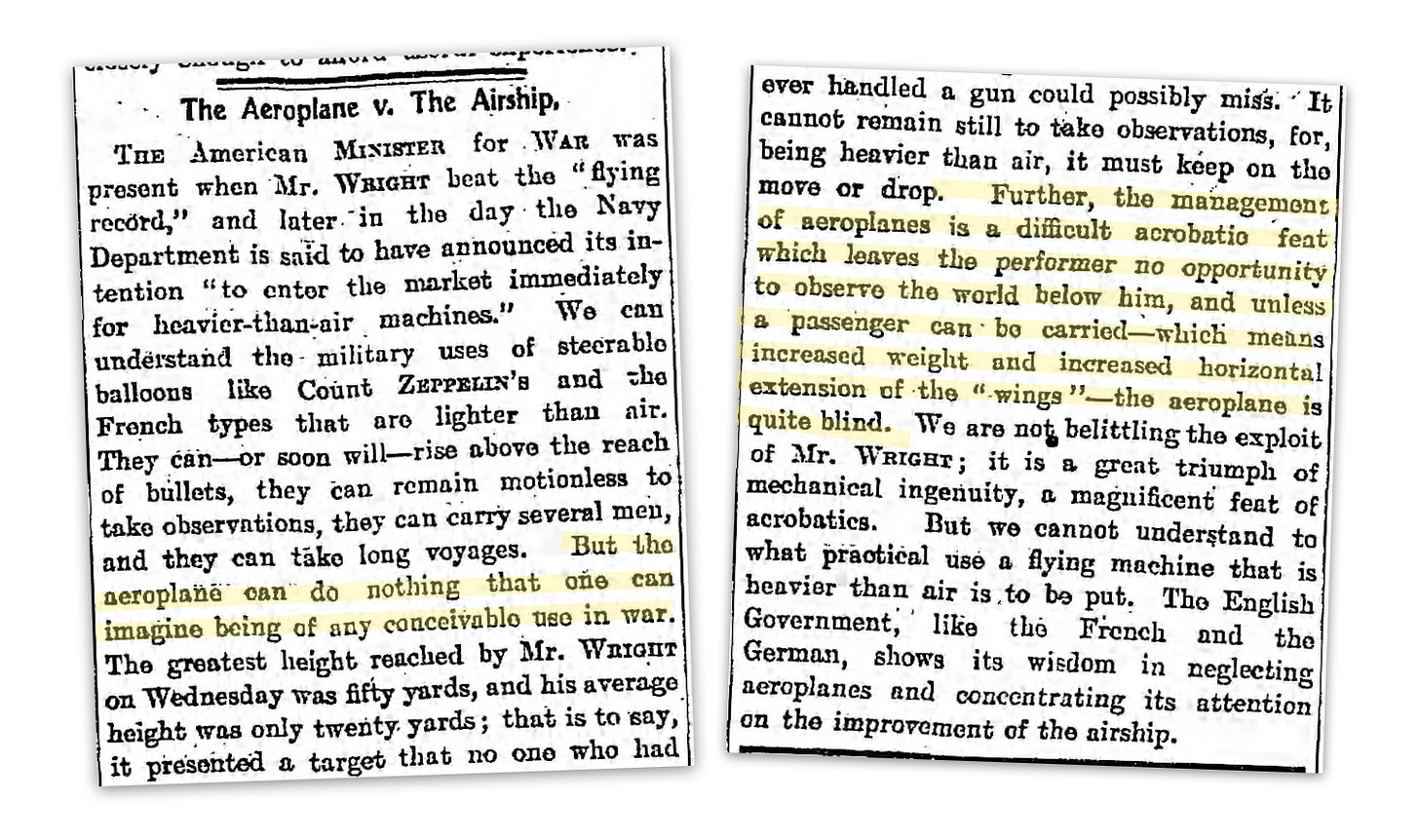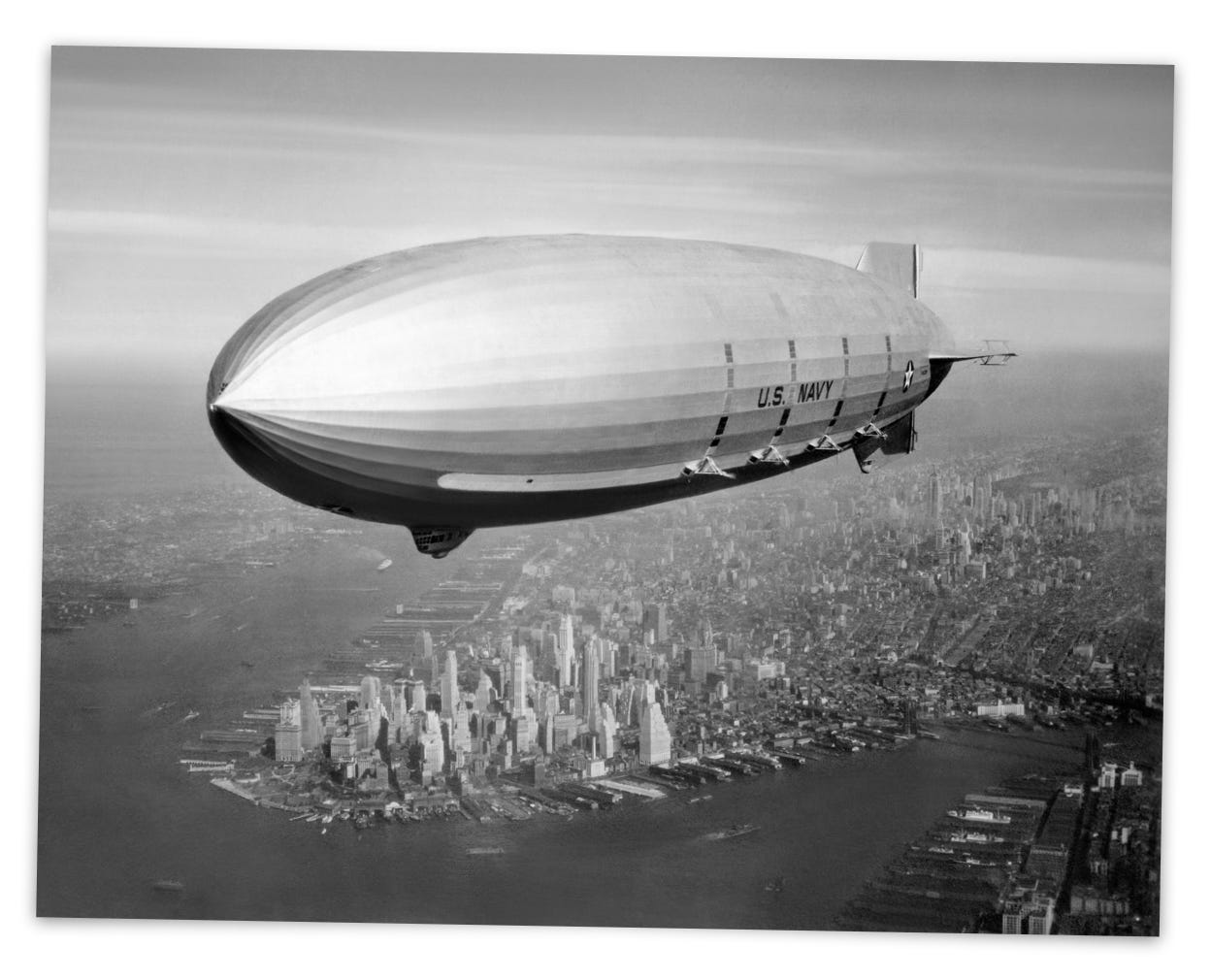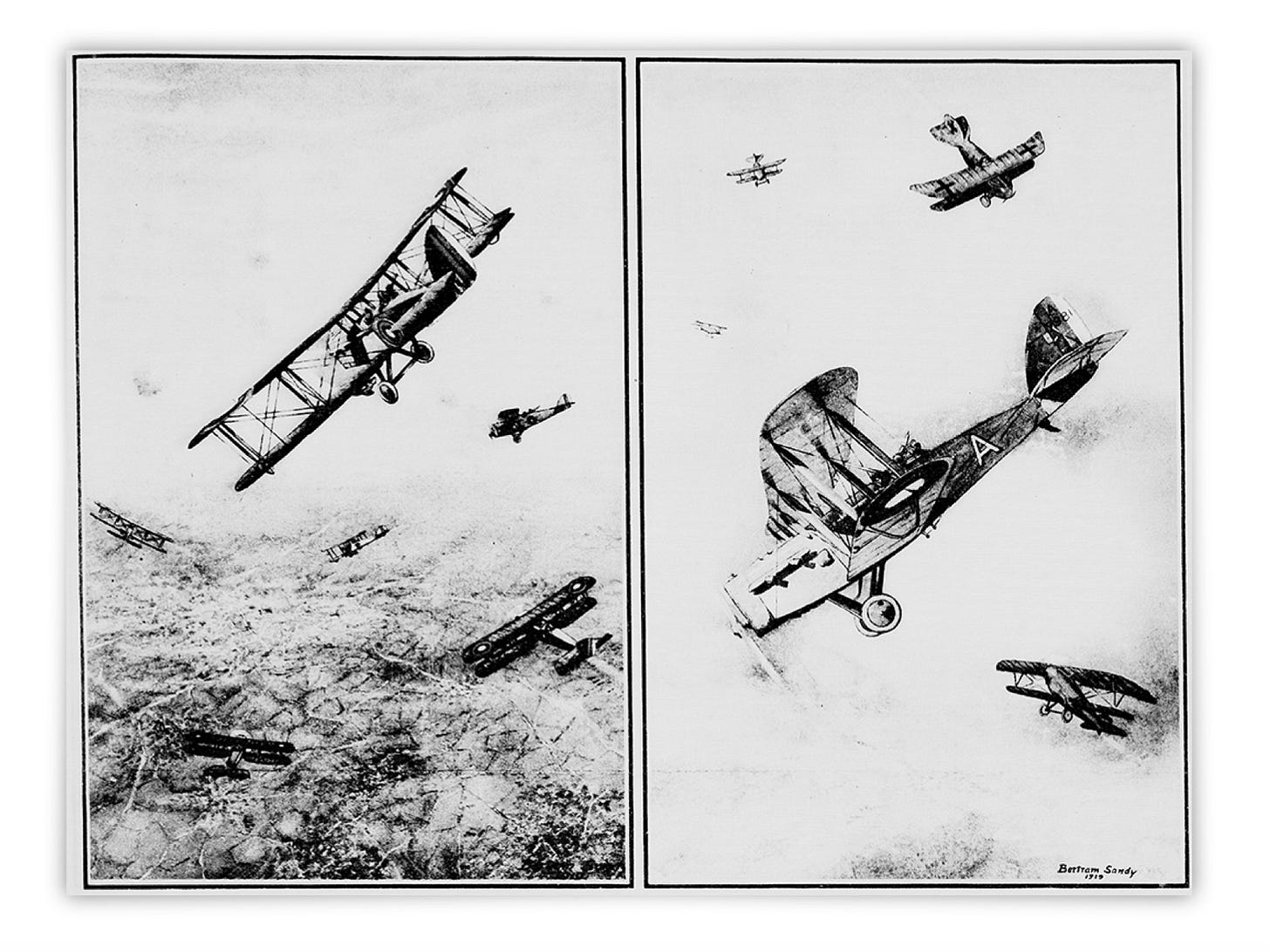Aeroplanes, Airships and Beta Bias
"We cannot understand to what practical use a flying machine that is heavier than air can be put." - Manchester Guardian, 1908
This amusing quote was shared on Twitter by ex-Financial Times assistant editor Brian Groom. Naturally we went looking for the original source and after a little digging, we found it:
Revealed is the quotes context: a comparison between aeroplanes and airships, prompted by a historic breakthrough: 1 week prior the Wright Brothers publicly proved possible heavier than air flying machines.
Sizing up the aeroplane against then dominant airships was a natural reaction to the breakthrough. Like many others, The Manchester Guardian (later renamed The Guardian) noted the existing limits of this nascent technology and the upsides of the established alternative.
Airships didn’t need a runway to take off or land, were easy to control, could hover mid-air and allowed the transport of many people at an average cruising altitude of 650ft - while the Wright Brothers only achieved 20ft. (The fact Airships were full of highly flammable gas went unmentioned.)
The Manchester Guardian commended the Wright Brother’s impressive “acrobatic” achievement and “great feat of mechanical engineering”, but dismissed the aeroplanes military potential because of early downsides: its low cruising altitude meant "it presented a target that no one who had ever handled a gun could possibly miss.” And its use in reconnaissance was doubted due to its limited capacity to carry passengers and the difficulty of piloting, giving “no opportunity to observe the world below.” The piece would end by commending the English, French and German governments for its focus on airship development.
The US Military officials present at the Wrights public demonstration were more optimistic however - seeing beyond early limits - towards possible improvement, with the Navy signalling intent to begin purchase of the new technology immediately.
Only 6 years later World War I would begin, military Aeroplanes would take to the skies - first for reconnaissance - helping the allied forces prevent the German’s invasion of France, among other things. This new intelligence advantage, saw weaponization soon follow, as each side sought to take out each others reconnaissance crafts.
When the United States entered World War I in 1917, France suggested it create a flying corps of 4,500 aeroplanes, the US set a goal of 22,625 - echoing the enthusiasm of its military leaders on first witnessing manned flight. It never managed to fulfil this goal and purchased the majority of its planes from France and the United Kingdom. By the end of the war it would form the Royal Airforce, the first dedicated airforce in the world, one that would play a key roll in World War II.
BETA BIAS
On paper - looking at pros and cons - dismissing the aeroplane would have felt fair, convincing and well reasoned in 1908. The problem though: this could apply to many nascent breakthrough technologies when comparing them to established alternatives. It isn’t a fair or useful comparison.
This common error in thinking about technology is certainly a strain of ‘status quo bias’, but should probably have a name: we’re christening it ‘beta bias.’
Beta Bias • The inclination to compare an early-stage version of a new technology, typically in its beta or developmental phase, with a more developed and established alternative technology. This comparison often overlooks the growth potential, cost reductions and future improvements of the new technology, leading to an underestimation of its eventual impact and utility.
Every nascent innovation has a more developed predecessor, more familiar and socially acceptable, with clear advantages, and disadvantages that society has rationalized. We’ll be exploring ‘beta bias’ more in our next post.
ENDORSEMENTS of the Pessimists Archive Project
Steven Pinker on Twitter
“Pessimists Archive is invaluable in putting today’s tech moral panics in historical perspective.”
Andrew Ng on Twitter
“This is a great website, and documents via news clippings the alarm over many beneficial innovations, such as electricity, bicycles, elevators, radio… …After the current wave of alarm over AI human extinction dies down, I wonder if statements about that will be featured on this website too?”









I'm looking forward to the Beta Bias article, but I don't think your example was particularly well chosen. First of all aviation had enthusiasts tinkering for centuries with very little success, so scepticism was warranted. It none the less exploded as a sport even before the war, with aviation events drawing huge crowds and the interest of military observers. Flying was seen as a good sport for officers, just like car races, as it encouraged a daring mindset and initiative. It also had a huge cultural impact from the get go. Airplane use cases for military purposes were still not obvious at the time, as its propable role was nestled between the balloon (for artillery spotting) and cavalry (for field reconnaisance), which where both well established in military structure. Still, there was a huge enthusiasm for aviation, and I think that the Guardian article is an outlier.
The airship, on the other hand, can not really be considered a mature technology by 1908. In that year LZ4 crashes, and that, together with several earlier crashes nearly bankrupted Count Zeppelin, one of the pioneers of large scale rigid airship construction. He could only continue development thanks to a national donation campain. Commercial Zeppelin flights started only in 1909, and by 1913 twelve Zeppelins of the 19 build so farbhad been destroyed in accidents. Still the airship was the superior technology for commercial long range flights till the end of the 1930s, with higher range and greater passenger capacity and comfort than planes. Commercial non-stop flights over the Atlantic were available from the 1920s - the first non-stop transatlantic commercial flight with an airplane became available in 1939.
I can no way be as erudite as Mr. Schmidt (below), but while I can appreciate the Guardian article and this post in the context of the Pessimists Archive, it stopped me in my tracks when I saw that the Manchester Guardian issue cited was published on 9/11. Jesus wept.